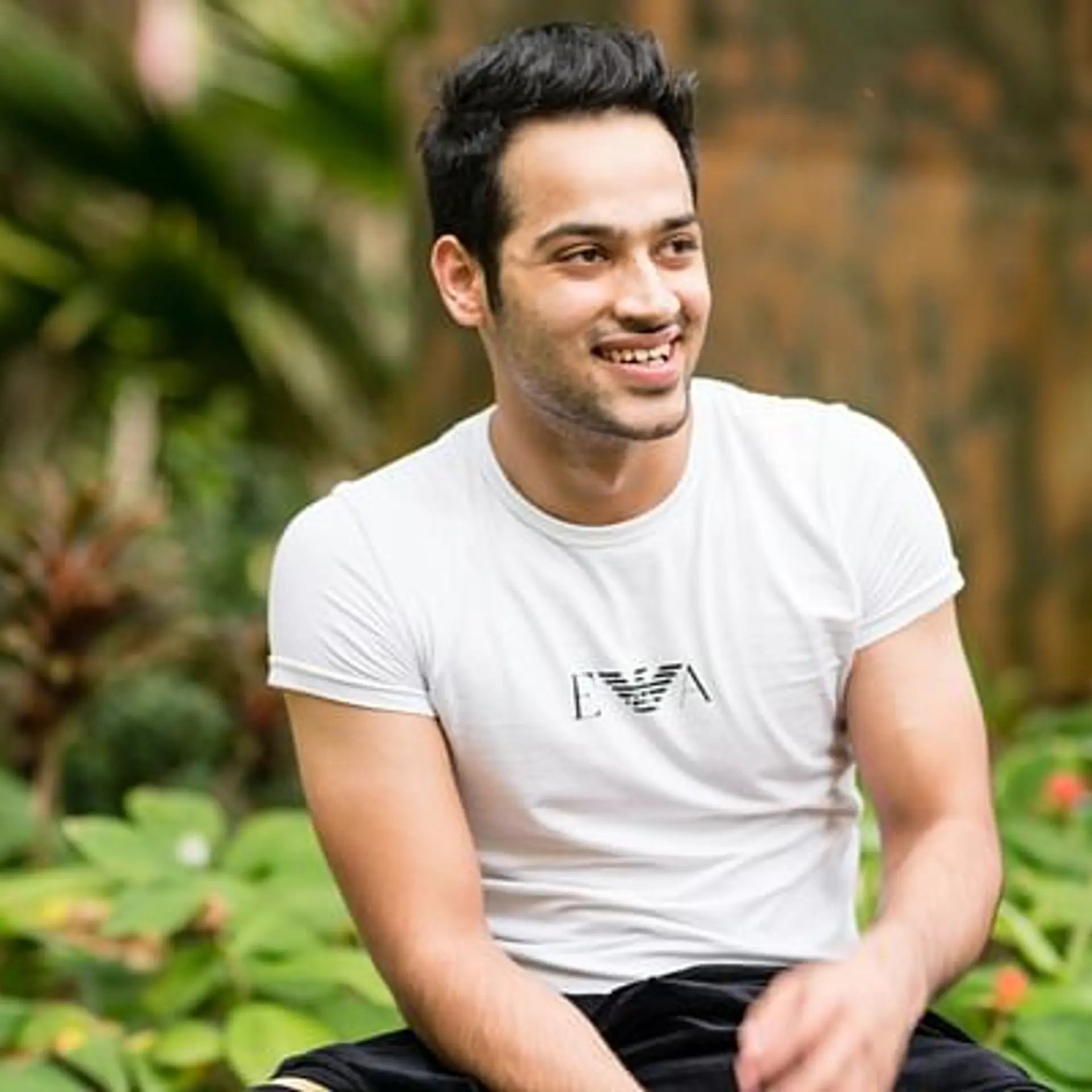From a small shop in Kolar, this entrepreneur went on to build a Rs 35 Cr ethnic wear brand
Starting with a small shop in Kolar, Umar Akhter set up Koskii, an ethnic wear brand, which now has eight stores across Bengaluru and one in Chennai, raking in a turnover of Rs 35 crore.
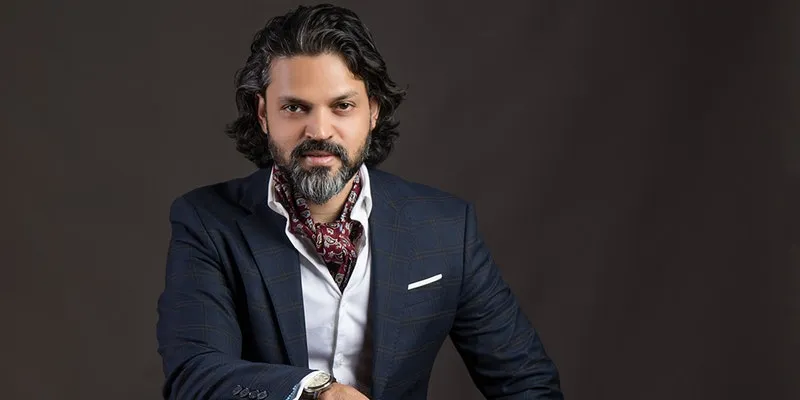
Umar Akhter, CEO, Koskii
Umar Akhter was just 16-year-old when hard times fell upon his father, Saifulla Akhter, a Bengaluru-based distributor, who would buy sarees from manufacturers to sell to retailers.
In a conversation with SMBStory, Umar says,
“We used to live in a small house and our father used to do business from home as we had no shop. I remember after coming back from school, I used to go to the market with my father on the back of his scooter, carrying a huge box of sarees.”
Umar, eldest of six children, recalls his father selling sarees to retailers located in Bengaluru and Hyderabad, with the latter holding the major share. But, one bad day changed their lives.
Due to some issues in Hyderabad, the city’s retailers shut shop and Saifulla’s payment of around Rs 8 lakh was stuck.
“We didn’t have money to pay the debt because the stock was sold in credit to Hyderabad retailers and the people whom we took credit began harassing us,” Umar adds.
It was a tough time for Umar and his family and they refused to continue the wholesale business on credit again. One day, they heard that a small businessman from Kolar was selling his shop at a meagre amount and inspiration struck.
How would it be if they could sell sarees from their own retail store and clear the market debt?
However, they needed one crucial ingredient – funds.
With the help of close friends and family, Saifulla managed to collect the amount to make the initial deposit to rent out the shop. In the process, he had to stop Umar’s education, who was in the 11th class and send him to take care of the shop in Kolar.
The idea of giving up his studies devasted Umar. He somehow convinced his father to let him study in Kolar, promising that he would manage both the business and his studies.
But the road ahead was a difficult one.
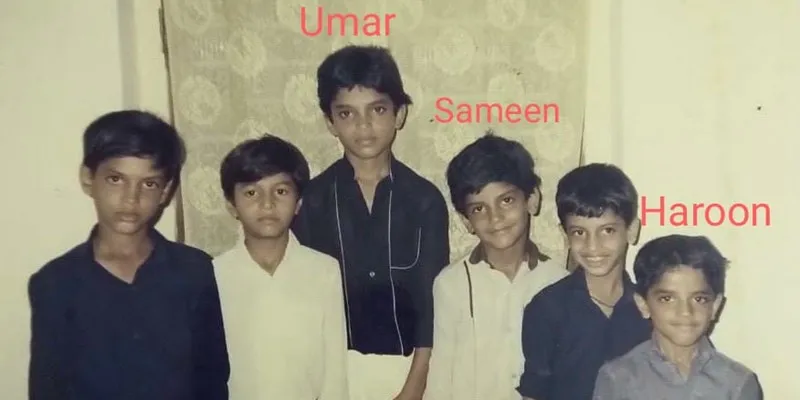
Umar's early days
Beginning of the entrepreneurial journey
In 1991, at the age of 16, Umar began his entrepreneurial journey. He continued studying but didn’t attend school regularly and just went to give exams. As he was the only person responsible for the operations of the business, he had to travel across the country to collect saree stocks.
He recalls, “When we rented the shop, we retained its old name ‘Mina Bazaar’. The journey started really slow but in a few months, we started making Rs 1,000 daily, which helped our family make ends meet.”
In the next few years, they cleared their debts and things started to look up. Umar even made to the college, becoming the first member of his family to graduate.
While Mina Bazaar was running steadily, the income was not high enough to expand the business.
To take the business forward, Umar thought of pursuing an MBA. However, as Kolar was a small town, it didn’t have a college for MBA and the nearest option was Bengaluru.
But, as he couldn’t leave the shop, he dropped the idea and settled for master’s in commerce instead.
His postgraduation stunned Umar’s family. He was the topper in institute in Kolar, which made his father realise that Umar would have done a lot better studying further.
“My father called me and said, tu toh bada smart hai (you are very smart). He told me to no longer worry about business and do whatever I feel like as my younger brother was then old enough to take care of the business,” Umar tells SMBStory.
But the time for studies had gone and destiny had different plans for Umar.
His grandfather called him and said they wanted to expand their retail business to Dubai. Umar says, “I had never stepped out of India and the idea of travelling on a flight was a dream come true. I immediately agreed and we headed to Dubai.”
There, Umar realised they could not establish an independent business and had to partner with someone local for the same. The plan somehow didn’t appeal to them and they decided to return to India.
“Our visa was expiring in 10 days. And so, we thought of visiting our relatives and friends in Dubai. My grandfather had an old friend staying there who called us for dinner and I would say that was a turning point in my life,” he adds.
Hearing Umar’s grandfather boast of his grandson’s academic achievements, the friend asked him if he would do a job in Dubai. His grandfather’s friend asked him if he knew how to work the Oracle software and the question left him speechless.
“I never had a computer in my house. I didn’t know the software world. But my grandfather’s friend said I need to know the software to do any job,” recalls Umar.
Stepping back to move ahead
This time, Umar decided to continue his studies with the support of his grandfather. Once the duo was back in India, Umar joined an institute to get a diploma in Oracle and Java.
After his course, he was hired in an on-campus placement as a software developer in a small company in Mysuru, which proved to be a stepping stone for him.
Though he was hired with a very small pay package, his excellent skills led him to become a Team Lead very soon.
Soon, he joined ThoughtWorks, where he worked for 10 years.
“There was a day I had to think twice before taking a train to another city but after getting a full-time job, I travelled across 52 countries. However, there was still an entrepreneur inside me that never died,” says Umar.
In 2009, while he was in the US, he received news of a shopkeeper selling his store in Shivaji Nagar, Bengaluru. He says that the entrepreneur inside him whispered - “Let’s buy this and expand Mina Bazaar to the big city.”
Umar had Rs 14 lakh in savings and he discussed the idea with his family. But, to his disappointment, they didn’t approve of his plan and told him to focus on his job. Not losing hope, he discussed it with his brother and the two decided to go ahead.
Umar set up the store with all his savings and named it Mina Bazaar. And, there has been no looking back since.
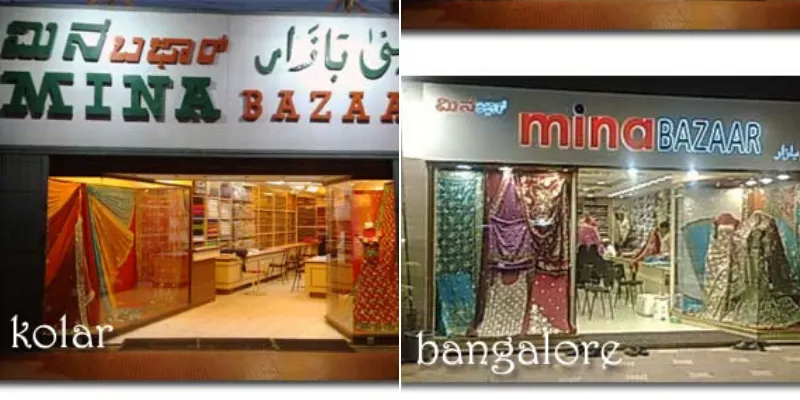
Mina Bazaar store in Kolar and Bengaluru
The Shivaji Nagar store got an excellent response from customers boosting Umar’s hopes to fulfil his vision - to be a big brand in the ethnic wear market.
In 2011, while he was in India, he met with an accident, which fractured both his legs. He says,
“My legs were fractured, and I was just lying with no work to do. I decided to go online and find a location to start the next store, I got to know that a shop in Kamaraj Road was available, which was the exact location I wanted Mina Bazaar’s next store to be.”
The day he got discharged from hospital, Umar asked his brother to take him to the shop owner to close the deal while he was still on his crutches. The store’s rent was higher than his salary and Umar had to negotiate quite a bit.
“I was able to convince the landlord into dropping the rent a little but my father wasn’t convinced. My whole family did not support my decision of taking such a risk but my determination didn’t resist me from taking a step forward and we opened the store at Kamaraj Road,” Umar says.
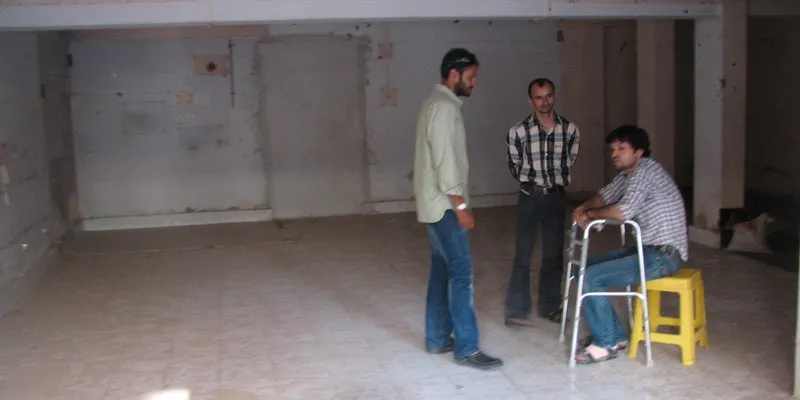
Umar negotiating the deal at Kamaraj Road store
And so, began the story of expansion.
In 2013, Umar opened another store in Chickpet, which is famous now as a one-stop-shop for occasion wear, especially among old Bangaloreans. By this time Umar’s father and brother had shut the Kolar store, and moved to Bengaluru to help manage sourcing and operations. His other brother Sameen Eajaz, who had a successful 10 year IT career at Philips too quit his job to join the business full time to help streamline operations.
Umar says, “It was becoming difficult to manage single-handedly. Thankfully, my brother joined me and stood by me in my every decision, but I also wanted my father to supervise all the operations”
In 2014, Umar set up another store in Commercial street. After this, he decided that it was time to become a full-time entrepreneur.
He says, “I was done with the job. The entrepreneur inside me wasn’t feeling great and I decided to come back to Bengaluru. I exited from ThoughtWorks as the MD of Singapore.”
Growing Koskii
Umar says, “I started promoting my brand on various advertisement modes, including radio. We found that most of the customers who were visiting us through radio mistook other Mina Bazaar store with us. There are hundreds of Mina Bazaar stores and an existing ‘Meena Bazaar’ store chain. So, we had to take immediate steps.”
In 2016, Umar opened another store in Jayanagar, and rebranded all their existing stores to .
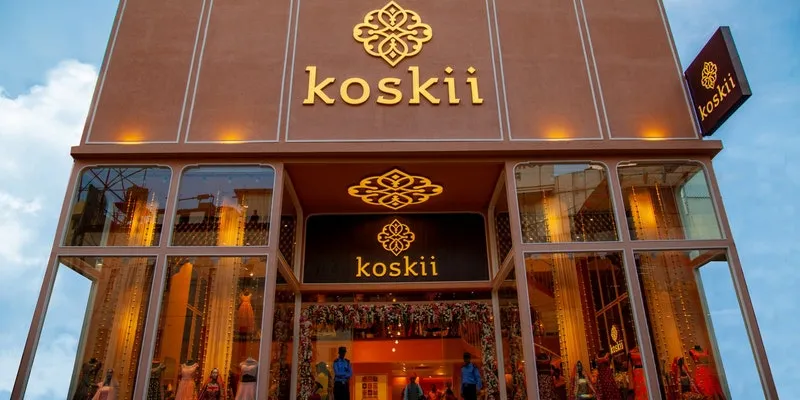
Koskii tower in Commercial Street, Bengaluru
From 2017 to 2018, Koskii expanded to Phoenix Mall, Mantri Square Mall, and a 15,000 sqft Koskii Tower on Kamraj Road Bengaluru. In 2019, the brand paved its way outside Bengaluru to set up shop on Cathedral Road, Chennai.
“Koskii tower on Kamaraj Road catches eyeballs, and was a eureka moment not only for me but for my entire family who once lived in a 600sqft home. None of us would have believed then that we would come such a long way,” Umar says.
Koskii now showcases lehengas (which is its main range), sarees, dresses, gowns, fabrics, and more. After a steady growth over eight years, in 2019 the company raked in Rs 35 crore revenue and plans to mark Rs 50 crore this financial year, all this while being consistently profitable.
Standing high in the ethnic wear hub
Umar says the women’s ethnic wear market is worth Rs 75,000 crore of which the occasion wear segment is about Rs. 35,000 crore. Most of the larger organised players like Meena Bazaar, Neeru’s, Soch, Mohey, and more collectively account for revenues of about Rs 2000 crore, there is still lots of room for him to play in the market, be known, and be profitable.

Collection at Koskii
“I don’t define competition as bad. I love when the other brands are growing. Healthy competition is always the best and I believe it adds more positivity.”
Koskii sources all the fabrics and outfits from across India, including Jaipur, Kolkata, Surat, Mumbai, and more. The stores showcase embroidered, handmade, machine-made, and a blend of hand and machine-made outfits.
The company employs hundreds of karigars through a third-party manufacturing facility who design and manufacture its products. Umar says his two younger brothers Haroon Rashid (Chief Product Officer), and Sameen Eajaz (COO) help him in the business. Haroon also takes care of the design of the outfits as well.
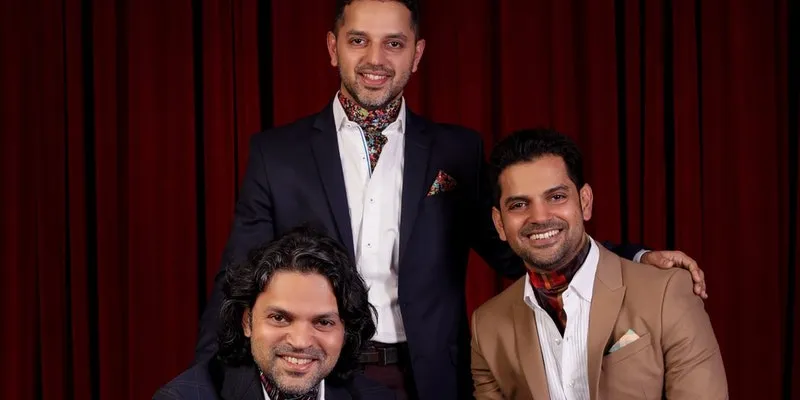
Umar Akhter (left), Sameen Eajaz (right), and Haroon Rashid (centre)
Talking about the financial challenges, Umar says as he wants to bring in investors but needs to find someone who strategically aligns with the vision that Koskii has to take it to the next level.
Also, he feels that introducing a clean supply chain is a dire need in the ethnic wear market. The manufacturers are very unorganised. For example, the lack of defining design numbers creates a hassle in communicating with manufacturers who deal in bulk to recreate a similar design when out of stock.
The path ahead
Talking about the future, Umar says his vision is to set a national footprint and is planning to expand in other cities and is aiming to set up shop in Hyderabad by April 2020. While he grows his offline footprint, he has also build an ecommerce platform to chart the journey from offline to online. While he says online sells, he believes that for the occasion wear category it, will be more a discovery platform and will help engage customers early in their buying cycle. He also wants to democratise the karigars who must have the potential to connect directly with the brands.
“The karigars have a lot of potentials and their creativity gets faded at times. I wish to create a structure where they can connect directly with the brands and churn out more profits,” he says.
(Edited by Saheli Sen Gupta)







